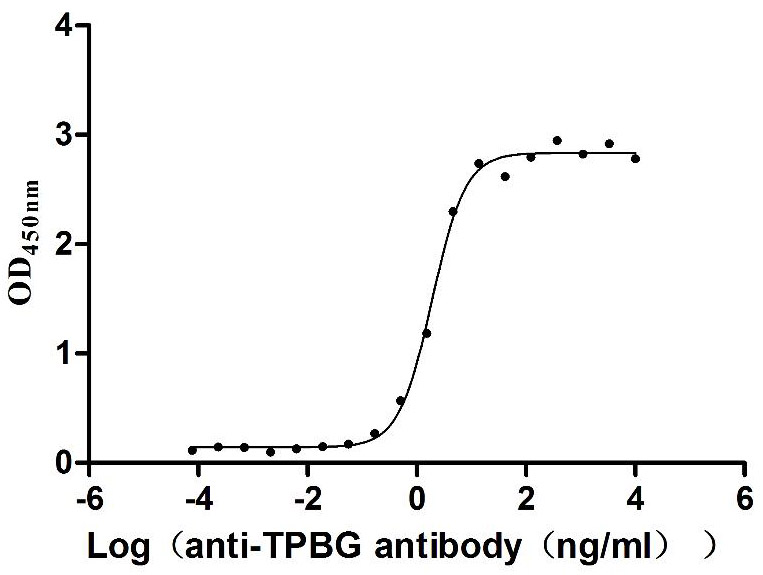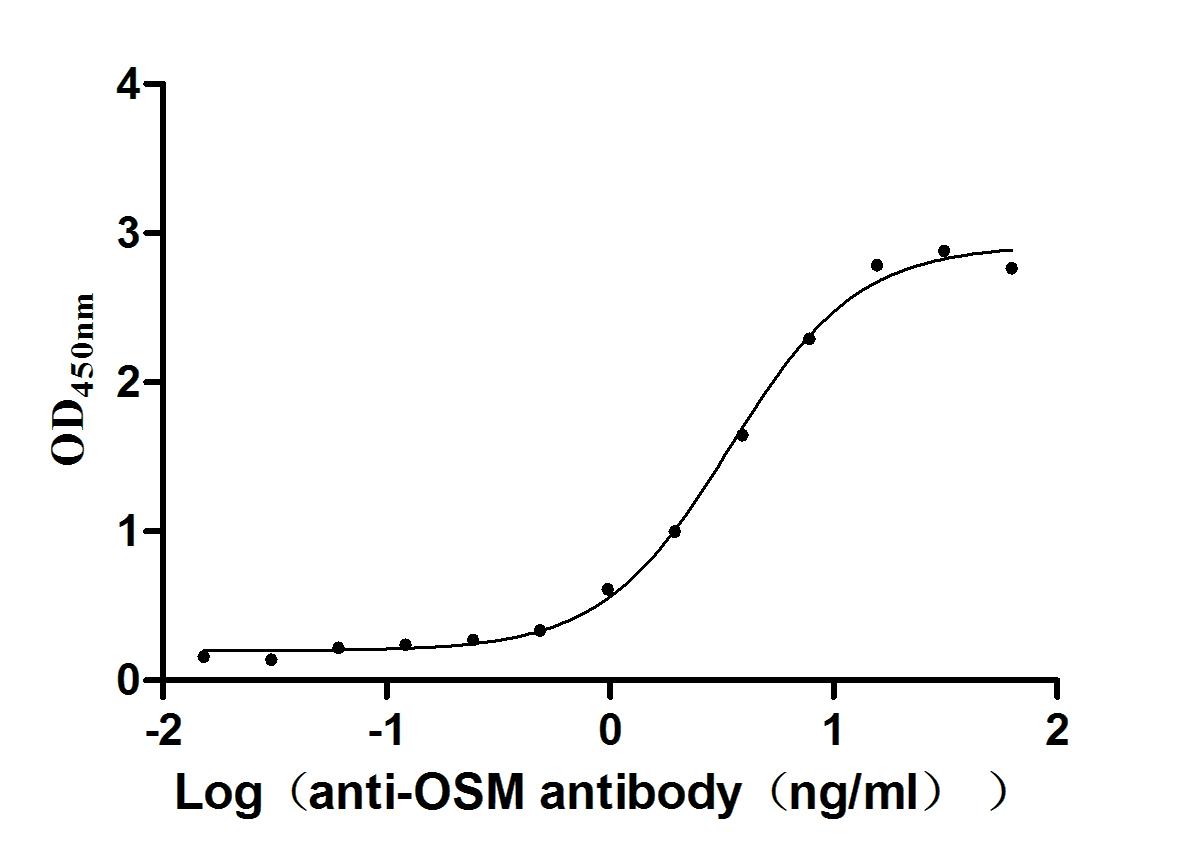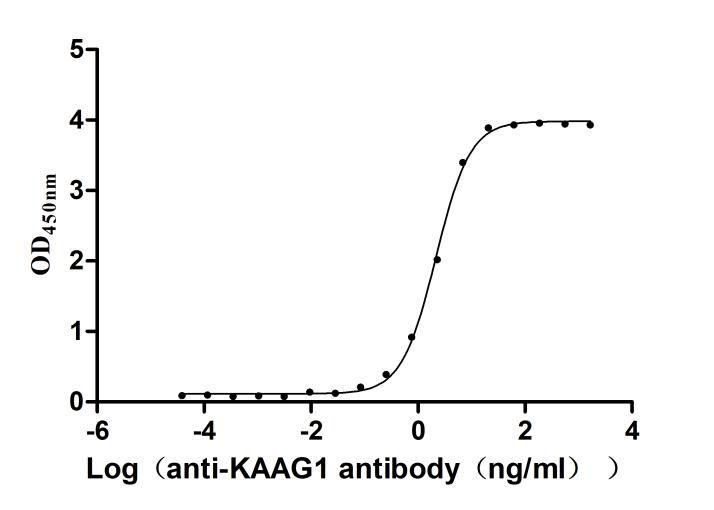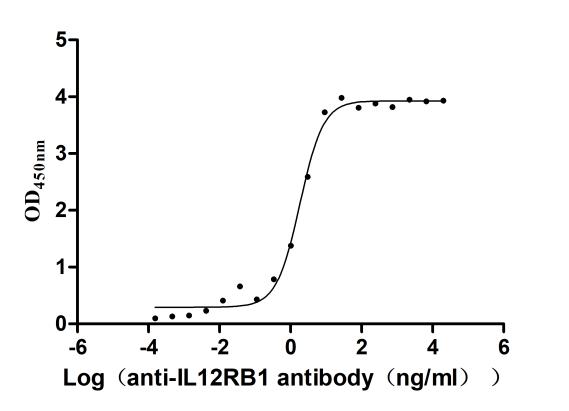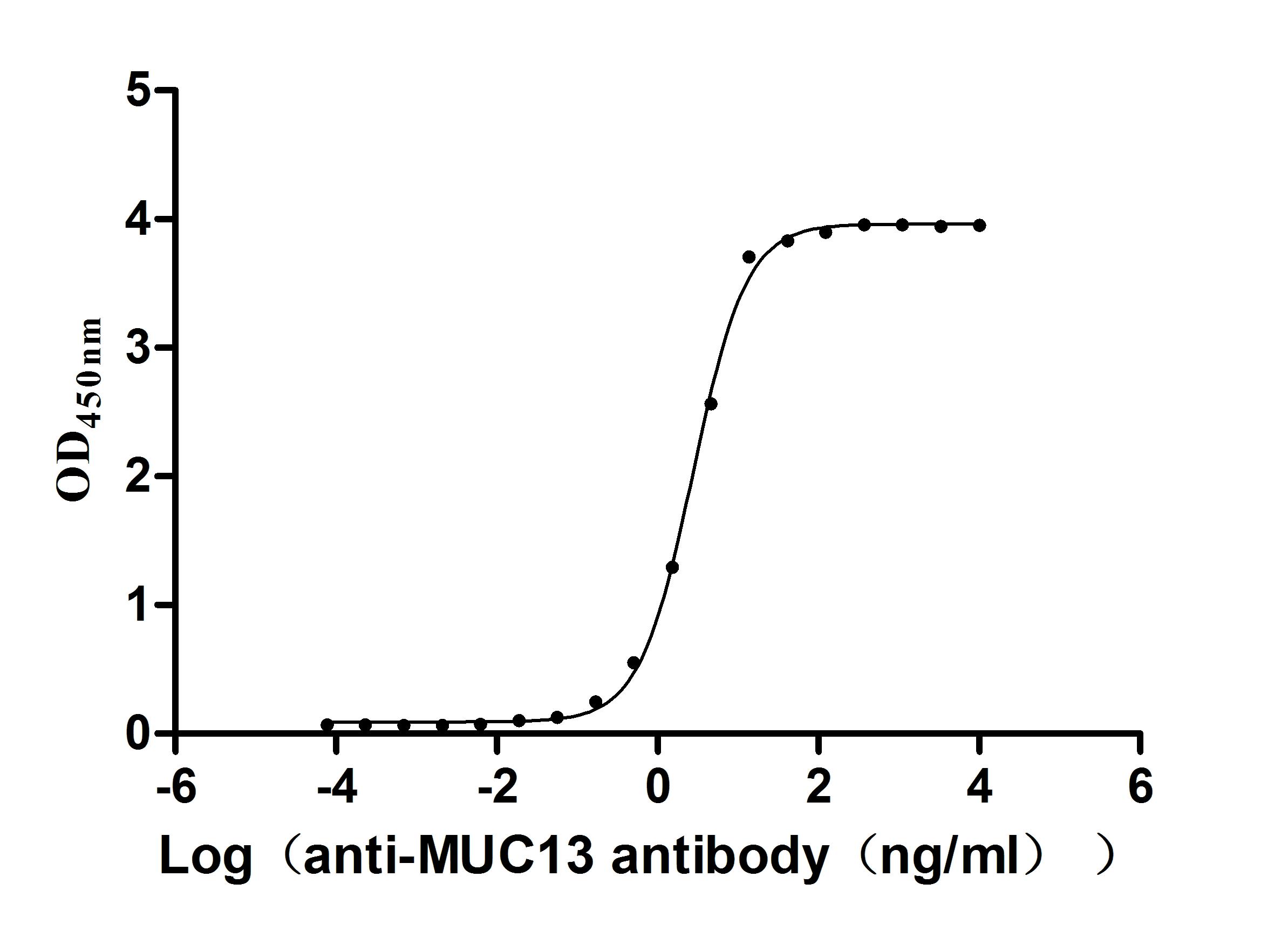Recombinant Mouse CCAAT/enhancer-binding protein beta (Cebpb)
-
货号:CSB-YP005181MO
-
规格:
-
来源:Yeast
-
其他:
-
货号:CSB-EP005181MO
-
规格:
-
来源:E.coli
-
其他:
-
货号:CSB-EP005181MO-B
-
规格:
-
来源:E.coli
-
共轭:Avi-tag Biotinylated
E. coli biotin ligase (BirA) is highly specific in covalently attaching biotin to the 15 amino acid AviTag peptide. This recombinant protein was biotinylated in vivo by AviTag-BirA technology, which method is BriA catalyzes amide linkage between the biotin and the specific lysine of the AviTag.
-
其他:
-
货号:CSB-BP005181MO
-
规格:
-
来源:Baculovirus
-
其他:
-
货号:CSB-MP005181MO
-
规格:
-
来源:Mammalian cell
-
其他:
产品详情
-
纯度:>85% (SDS-PAGE)
-
基因名:
-
Uniprot No.:
-
别名:CebpbCCAAT/enhancer-binding protein beta; C/EBP beta; AGP/EBP; Interleukin-6-dependent-binding protein; IL-6DBP; Liver-enriched transcriptional activator; LAP
-
种属:Mus musculus (Mouse)
-
蛋白长度:Full length protein
-
表达区域:1-296
-
氨基酸序列MHRLLAWDAA CLPPPPAAFR PMEVANFYYE PDCLAYGAKA ARAAPRAPAA EPAIGEHERA IDFSPYLEPL APAADFAAPA PAHHDFLSDL FADDYGAKPS KKPADYGYVS LGRAGAKAAP PACFPPPPPA ALKAEPGFEP ADCKRADDAP AMAAGFPFAL RAYLGYQATP SGSSGSLSTS SSSSPPGTPS PADAKAAPAA CFAGPPAAPA KAKAKKTVDK LSDEYKMRRE RNNIAVRKSR DKAKMRNLET QHKVLELTAE NERLQKKVEQ LSRELSTLRN LFKQLPEPLL ASAGHC
-
蛋白标签:Tag type will be determined during the manufacturing process.
The tag type will be determined during production process. If you have specified tag type, please tell us and we will develop the specified tag preferentially. -
产品提供形式:Lyophilized powder
Note: We will preferentially ship the format that we have in stock, however, if you have any special requirement for the format, please remark your requirement when placing the order, we will prepare according to your demand. -
复溶:We recommend that this vial be briefly centrifuged prior to opening to bring the contents to the bottom. Please reconstitute protein in deionized sterile water to a concentration of 0.1-1.0 mg/mL.We recommend to add 5-50% of glycerol (final concentration) and aliquot for long-term storage at -20℃/-80℃. Our default final concentration of glycerol is 50%. Customers could use it as reference.
-
储存条件:Store at -20°C/-80°C upon receipt, aliquoting is necessary for mutiple use. Avoid repeated freeze-thaw cycles.
-
保质期:The shelf life is related to many factors, storage state, buffer ingredients, storage temperature and the stability of the protein itself.
Generally, the shelf life of liquid form is 6 months at -20°C/-80°C. The shelf life of lyophilized form is 12 months at -20°C/-80°C. -
货期:Delivery time may differ from different purchasing way or location, please kindly consult your local distributors for specific delivery time.Note: All of our proteins are default shipped with normal blue ice packs, if you request to ship with dry ice, please communicate with us in advance and extra fees will be charged.
-
注意事项:Repeated freezing and thawing is not recommended. Store working aliquots at 4°C for up to one week.
-
Datasheet :Please contact us to get it.
靶点详情
-
功能:Important transcription factor regulating the expression of genes involved in immune and inflammatory responses. Plays also a significant role in adipogenesis, as well as in the gluconeogenic pathway, liver regeneration, and hematopoiesis. The consensus recognition site is 5'-TEssential for gene expression induction in activated macrophages. Plays a major role in immune responses such as CD4(+) T-cell response, granuloma formation and endotoxin shock. Not essential for intracellular bacteria killing.; Acts as a dominant negative through heterodimerization with isoform 2. Promotes osteoblast differentiation and osteoclastogenesis.
-
基因功能参考文献:
- findings support that C/EBPbeta plays a pivotal role in AD pathogenesis via increasing delta-secretase expression PMID: 29725016
- LCoR negatively regulates early adipogenesis by repressing C/EBP beta transcriptional activity and add LCoR to the growing list of transcriptional corepressors of adipogenesis. PMID: 28972158
- results support a stimulatory effect of Pb on adipogenesis which involves ERK activation and C/EBPbeta upregulation prior to PPARgamma and adipogenesis activation. PMID: 28646352
- Purple sweet potato colour, a class of naturally occurring anthocyanins, exhibited beneficial effects on hepatic steatosis, which were associated with blocking Src and C/EBPbeta activation. PMID: 28636830
- Thus, this study identifies BCL11B as a novel regulator of adipogenesis, which works, at least in part, by stimulating C/EBPbeta activity and suppressing the Wnt/beta-catenin signaling pathway. PMID: 27586877
- Study shows that alpha melanocyte stimulating hormone and forkhead box C2 protein promote fatty acid oxidation through C/EBPbeta negative transcription in mice adipose tissue. PMID: 27819350
- The results indicated that miR-16 was transactivated by C/EBP-beta resulting in aggravated Ischemia-reperfusion induced acute kidney injury and that urinary miR-16 may serve as a potential biomarker for acute kidney injury. PMID: 27297958
- These results suggest that C/EBPbeta is an endogenous initiator of neuropathic pain and could be a potential target for the prevention and treatment of this disorder. PMID: 28698219
- We found that C/EBPbeta is phosphorylated by CK2 under AMPK suppression and ER stress, which are important from the viewpoint of the worsening pathological condition of type 2 diabetes, such as decreased insulin secretion and apoptosis of pancreatic beta cells. PMID: 29448105
- Expression of the SENP2 gene was suppressed by theobromine. In vivo knockdown studies showed that AR1 knockdown in mice attenuated the anti-adipogenic effects of theobromine in younger mice. Theobromine suppresses adipocyte differentiation and induced C/EBPbeta degradation by increasing its sumoylation. PMID: 28965824
- C/EBPbeta is a novel regulator of satellite cell self-renewal during muscle regeneration acting at least in part through Notch2. PMID: 27923399
- These data establish C/EBPbeta as a key driver of autoimmune inflammation in EAE, and propose a novel role for C/EBPbeta in regulation of IL-23R expression. PMID: 28088614
- C/EBPbeta in hematopoietic cells is crucial to regulate diet-induced inflammation, hyperlipidemia and atherosclerosis development PMID: 27072340
- C/EBPbeta or Stat3 depletion by siRNA in sepsis Gr1(+)CD11b(+) MDSCs inhibits miR-21 and miR-181b expression. PMID: 27430527
- The present study indicates a requirement for C/EBPbeta in the insulin-mediated induction of SREBP-1c mRNA expression in rodent liver. Coupled with previous data showing that this induction requires LXRalpha, our data reported herein indicate a requirement for both transcription factors. PMID: 27382175
- elevated LIP/LAP ratio robustly increased Ogn expression and cell death under stress by modulating the mitogen-activated protein kinase/activator protein 1 pathway (MAPK/AP-1). PMID: 28383550
- Ptn may play a vital role in the progesterone-induced decidualization pathway via C/EBPB-cyclic AMP-Hand2 signaling. PMID: 28657144
- C/EBPbeta is a critical factor for Ly6C(-) monocyte survival, at least in part through upregulation of Csf1r. PMID: 28807982
- these results support that decreasing C/EBPbeta expression prevents MDSC generation and decreases immunosuppression in septic mice, providing a target for sepsis treatment. PMID: 28934717
- PARP-1 attenuates adipogenesis by PARylating C/EBPb, a pro-adipogenic transcription factor, on three residues in its regulatory domain. PMID: 28107648
- Results show that C/EBPbeta and C/EBPdelta actively regulate the promotor region of both splicing variants Ppargamma1sv and Ppargamma2 in mouse adipocytes. PMID: 23840343
- These results show that C/EBPbeta directs a switch from proinflammatory to repressor myeloid cells PMID: 28476751
- Both gain- and loss-of-function studies showed that an accumulation of the CCAAT/enhancer binding protein-beta (C/EBP-beta) protein, which cooperates with dominant transcriptional co-regulator PR domain containing 16 (PRDM16) to determine brown/beige adipocyte lineage, is essential for the enhanced adipocyte browning caused by the loss of ZIP13 PMID: 28854265
- monocyte differentiation occurred through de novo enhancer establishment and activation of pre-established (poised) enhancers. Generation of Ly6C(-) monocytes involved induction of the transcription factor C/EBPbeta and C/EBPbeta-deficient mice lacked Ly6C(-) monocytes. PMID: 28514690
- Intra-tumor IL-6, C/EBP-beta and PPAR-gamma expression correlated with intramuscular liposarcoma growth in mice and autophagy. PMID: 28668397
- these findings highlight a critical role of TSC1 in regulating innate immunity by control of the mTOR1-C/EBPbeta pathway. PMID: 27593484
- Expression of miR-26a or knockdown of Klf4 or Creb or C/ebpbeta, attenuated the survival of Mycobacterium tuberculosis in macrophages. PMID: 28558034
- Valproic acid attenuated muscle wasting and myotube atrophy and reduced C/EBPbeta binding to atrogin1 promoter locus in the myotubes. PMID: 27122162
- work shows that helenalin acetate inhibits C/EBPbeta by binding to the N-terminal part of C/EBPbeta, thereby disrupting the cooperation of C/EBPbeta with the co-activator p300. PMID: 27803164
- SatM (ceacam1(+)Msr1(+)Ly6C(-)F4/80(-)Mac1(+) monocytes, called "segregated-nucleus-containing atypical monocytes") are critical for fibrosis and C/EBPbeta licenses differentiation of SatM from their committed progenitor PMID: 28002407
- The stimulation of CCAAT/enhancer binding protein (C/EBP) beta expression by interleukin-1beta following muscle injury and in cancer cachexia acts to promote muscle satellite cells survival. PMID: 26913600
- Cebpb phosphorylation is inhibited by retinoic acid. PMID: 26271478
- C/EBPbeta controls M2-macrophage gene expression in the heart. Thus, C/EBPbeta appears as a transcription factor required for cardiac hypertrophy response to gestation. PMID: 26476039
- Suggest Hmgn1/Cebpb signaling may play an important role during mouse decidualization. PMID: 26566865
- HMGA2 is required for C/EBPbeta-mediated expression of PPAR gamma, and thus promotes adipogenic differentiation. PMID: 26966068
- This study showned that the transcription factor C/EBPbeta directly regulates the expression of the C3 gene, and that this control could be relevant for the pro-inflammatory effects of this transcription factor PMID: 25617152
- Loss of C/EBPbeta expression in primary myoblasts rescues differentiation under cachectic conditions without restoring myotube size, indicating that C/EBPbeta is an important inhibitor of myogenesis in cancer cachexia. PMID: 26709824
- PKR inhibition reduced the expression of eIF4B and C/EBPbeta in an eIF2alpha-independent manner PMID: 26646662
- Pharmacologic stimulation of C/EBPbeta expression reprograms myoblasts to a more stem cell-like state, promotes expansion in culture, and improves engraftment such that better transplantation outcomes are achieved. PMID: 26941360
- propose that the pathology of MCDS is underpinned by XBP1 independent UPR-induced dysregulation of C/EBP-beta-mediated chondrocyte differentiation PMID: 26372225
- C/EBPbeta contributes to immunity to mucosal candidiasis during cortisone immunosuppression in a manner linked to beta-defensin 3 expression, but is apparently dispensable for the IL-17-dependent response. PMID: 26317211
- Data suggested that translational adjustment of C/EBPbeta-isoform expression is one of the key processes that direct metabolic adaptation in response to changes in mTORC1 activity. PMID: 26113365
- NF-IL6 plays a dual role for sickness response and immune-to-brain communication: acting pro-inflammatory at 8h but anti-inflammatory at 24 h after onset of the inflammatory response reflecting active natural programming of inflammation. PMID: 25813145
- Overexpression of LIP significantly reduced the level of polyomavirus JC T-antigen. PMID: 26017382
- Par4, CEBPB and FAK form a senescence signaling pathway, playing roles in modulating cell survival, growth, apoptosis, EMT and self-renewal PMID: 25472717
- Simulated microgravity activates a p38 MAPK-C/EBPbeta pathway in macrophages to up-regulate arginase and IL-6 expression and down-regulate IL-12B expression PMID: 25804385
- C/EBPbeta was the main regulator of P2X7 receptor expression in response to a glucose challenge. C/EBPalpha and the C/EBPbeta-LIP isoform blocked the C/EBPbeta-dependent regulation of P2X7 receptor transcription. PMID: 25403356
- C/EBPbeta and RUNX2 cooperatively stimulate expression of Ihh through direct interactions with a C/EBPbeta binding element, which further promotes hypertrophic differentiation of chondrocytes during the chondrocyte differentiation process. PMID: 25105964
- Adamts-1 upregulation by inducers of pathological vascular remodeling is mediated by specific signal transduction pathways involving NFAT or C/EBPbeta transcription factors. PMID: 26217013
- C/EBPbeta controls lymphoma-associated dendritic cell cytokine expression. PMID: 25266931
显示更多
收起更多
-
亚细胞定位:Nucleus. Cytoplasm.
-
蛋白家族:BZIP family, C/EBP subfamily
-
组织特异性:Abundantly expressed in myoblasts. Enriched in brown adipose tissue (BAT) versus white adipose tissue (WAT). Expressed in hepatocytes (at protein level). Expressed in T lymphocytes. The expression in granulosa cells of antral follicles is induced by lutei
-
数据库链接:
KEGG: mmu:12608
STRING: 10090.ENSMUSP00000069850
UniGene: Mm.439656
Most popular with customers
-
Recombinant Macaca fascicularis Delta-like protein 3 (DLL3), partial (Active)
Express system: Mammalian cell
Species: Macaca fascicularis (Crab-eating macaque) (Cynomolgus monkey)
-
Recombinant Human papillomavirus type 16 Protein E7 (E7) (Active)
Express system: E.coli
Species: Human papillomavirus type 16
-
Recombinant Mouse Claudin-18 (Cldn18)-VLPs (Active)
Express system: Mammalian cell
Species: Mus musculus (Mouse)
-
Recombinant Macaca fascicularis Trophoblast glycoprotein (TPBG), partial (Active)
Express system: Mammalian cell
Species: Macaca fascicularis (Crab-eating macaque) (Cynomolgus monkey)
-
Recombinant Human Oncostatin-M (OSM), partial (Active)
Express system: Mammalian cell
Species: Homo sapiens (Human)
-
Recombinant Human Kidney-associated antigen 1(KAAG1) (Active)
Express system: E.coli
Species: Homo sapiens (Human)
-
Recombinant Human Interleukin-12 receptor subunit beta-1(IL12RB1),partial (Active)
Express system: Mammalian cell
Species: Homo sapiens (Human)
-
Recombinant Human Mucin-13(MUC13),partial (Active)
Express system: yeast
Species: Homo sapiens (Human)


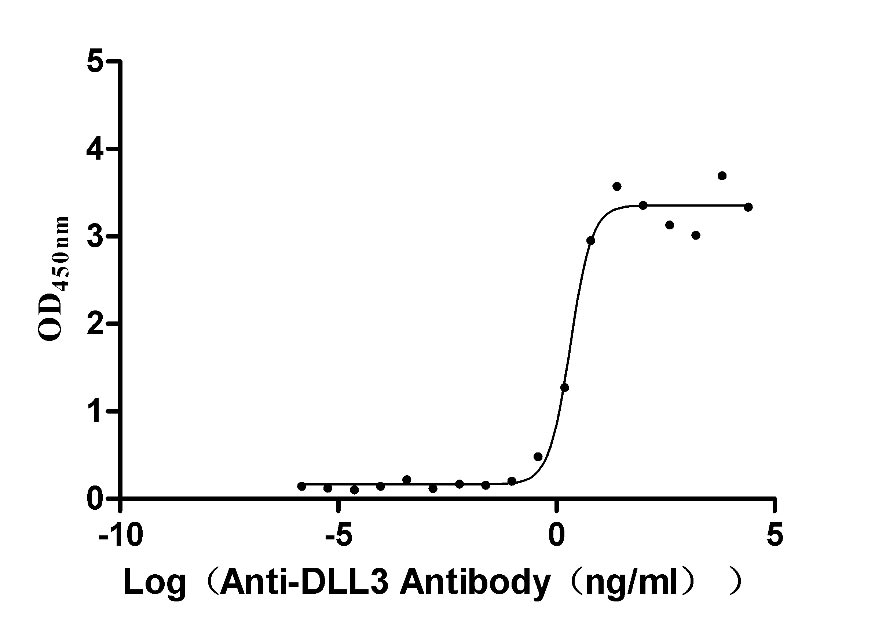
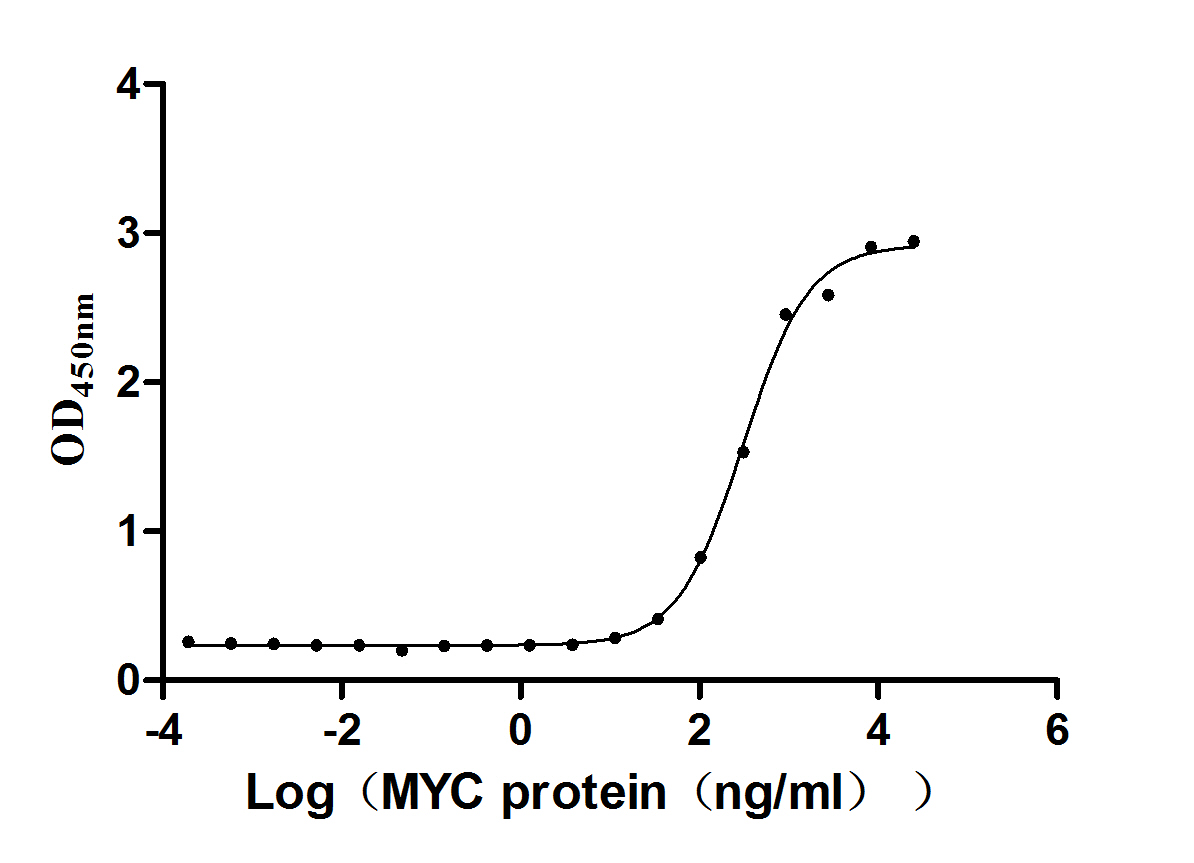
-AC1.jpg)
